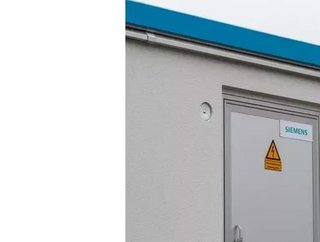Aral selects Siemens for gas station upgrades in Germany

Aral AG, a subsidiary of the bp group in Germany, has tasked Siemens Smart Infrastructure with expanding the grid connection at 30 gas stations.
The installation of intelligent substations, expected to be completed by the end of February, allows Aral to upgrade its gas stations with ultra-fast charging technology for electric vehicles.
The expansion of the public charging infrastructure is an essential requirement for the acceleration of electric mobility. The joint project between Aral and Siemens is an important contribution to creating public fast-charging stations.
“By equipping our gas stations with charging infrastructure for electric vehicles, we are taking a major step forward in creating the gas station of the future,” said Patrick Wendeler, member of the Managing Board of Aral AG. “To make charging as fast as putting fuel in your car, we have opted for ultra-fast charging stations with a power of up to 350kW. But chargers alone are not enough: The retrofit also requires a powerful and reliable grid connection. That is why we are glad to have Siemens with its expertise in electrical infrastructure at our side.”
Most gas stations currently only have a low-voltage connection and to meet the increased power demand of fast chargers, the grid connection needs to be upgraded to a medium-voltage connection with much higher power. This is achieved through the substations which connect the gas stations’ charging infrastructure to the public power grid.
Each substation consists of a hermetically capsulated transformer, a gas-insulated medium-voltage switchgear, type 8DJH, and a Sivacon S8 low-voltage switchboard.
By using communicating hardware and IoT technology, Aral can obtain information about the status of the substations at any time. This will enable the blue-and-white labeled service station brand to guarantee their customers the full functionality of its ultra-fast charging stations even better than today.
The utilization of sensors helps to generate data, thereby ensuring continuous monitoring of the health status and a safe operation of the equipment. These values are then transmitted over communication interfaces to a higher-level, cloud-based IoT system. The data is evaluated and visualized via a web application in a useful addition to those of the fast charging stations.
“This intelligent substation not only allows Aral to introduce ultra-fast charging technology, but also ensures highest reliability and better grid utilization within the existing infrastructure,” said Stephan May, CEO of Distribution Systems at Siemens Smart Infrastructure.
“Real time data monitoring enables optimal usage of the assets. For this reason, digitalization is an important prerequisite for efficient load management and to optimize the use of power resources.”
Aral operates all ultra-fast charging stations on its own, supplying 100 percent green power. Assuming the appropriate battery technology is provided, the electric vehicle can be fully recharged within ten minutes to a range of up to 350kms.
The roll-out of high-power chargers at Aral gas stations in Germany is part of bp’s strategy to increase the number of charge points. Globally operated charging points will be increased from 7,000 in 2020 to 70,000 in 2030.
Sales of battery-electric vehicles in Germany increased three-fold to more than 194,000 units in 2020 and the country is aiming for 7m-10m EV registrations by 2030.






